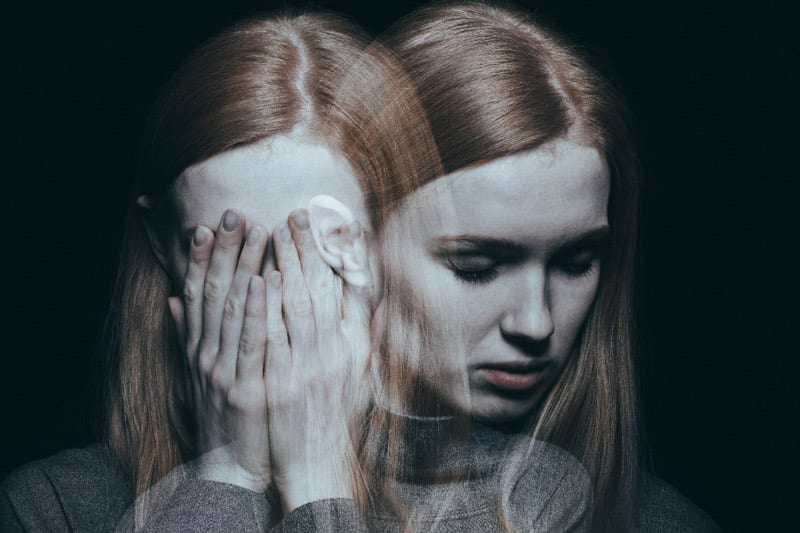A Quick Guide
Bipolar disorder is characterized by severe mood swings between mania and depression. Bipolar depression is characterized by low mood, eating and sleep disorders, and other symptoms that are frequently challenging to accurately identify. Because of the potential dangers such as comorbid health problems and suicide, timely care with medication is critical. In this article, we will look into what bipolar depression is along with its symptoms, challenges, and management options.
Bipolar affective disorder: what is it?
Have you ever heard of the term bipolar affective disorder? If you haven’t it’s okay. To understand it, we are going to break it down into its components. The word ‘Bi’ refers to two, ‘polar’ refers to two poles or categories that are quite divergent from each other. And finally, ‘affect’ refers to one’s emotions, feelings, or overall mood. So, when we say someone is suffering from bipolar affective disorder, we mean that the person may experience two alternating mood states that are extremely different from each other. The first state is mania (elated mood) and the second state is depression (low mood). Likewise, alternatively experiencing these two highly divergent mood states can be quite distressing for the individual.
Bipolar depression: what does it mean?
As explained above, a person with bipolar affective disorder also experiences a depressive episode. So, bipolar depression is quite distinct in terms of its symptomology, severity, duration, and management from its counterpart i.e. manic episodes and hypomanic episodes.
Common Symptoms
a)Two prominent bipolar depression signs include:
- Depressed or low mood.
- Anhedonia or loss of interest in previously enjoyed activities.
b) Also, at least five of the following bipolar depression symptoms may also be present for 2 weeks.
- Increase or decrease in appetite or loss/gain of weight almost every day
- Increase or decrease in sleep nearly every day
- Feeling agitated/restless or slowed down
- Experiencing fatigue or loss of energy
- Feeling worthless or excessively guilty nearly every day
- Difficulty thinking, concentrating, or making decisions
- Having frequent thoughts of dying or committing suicide. Some individuals even make a plan. Whereas, others carry it out and make suicidal attempts.
c)Use of a substance or medication, a medical condition, or another psychological disorder is not responsible for the above bipolar depression symptoms
d) Furthermore, such symptomology may have a negative effect on social life, occupational life, daily life, and academic life.
The challenges of bipolar depression
According to research, bipolar depression brings with it unique clinical challenges. Particularly, individuals with undergoing it are at risk for:
- Excessive morbidity of their illness
- Mortality (death) due to comorbid medical conditions. For example, diabetes, disorders of metabolism, cardiovascular diseases, etc
- Developing comorbid psychiatric conditions. For example, anxiety, substance use disorders, disability, etc.
- Committing suicide.
- Apart from the above, it is also quite challenging for mental health professionals to differentiate between unipolar depression which is simply major depressive disorder, and bipolar depression. Due to this, accurate diagnosis and timely treatment are often not done. This may delay management by 6 to 8 years or even longer depending on individual cases.
- In addition to that, many patients suffering from bipolar depression are fearful of seeking professional help. Due to this, they may avoid reporting their symptoms to the concerned practitioners. Sometimes, they may not recognize the shifts in their mood from low to high state. Similarly, they may have difficulty identifying the shift in their energy, activity, and libido when they alternate from a manic to a depressive state.
Management of bipolar depression symptoms
Due to such a high risk, hospitalization may be necessary for immediate management of the drastic symptoms. Especially, to prevent the person from harming himself or others. Medication is immediately required as well. Lithium is the most popular treatment choice for bipolar depression. Unfortunately, other treatment options for it have not been researched quite extensively. In some cases, antidepressants may be given to the patients. However, their effectiveness may be short-term. Especially as the symptoms may become worse or trigger rapid cycling of manic and depressive episodes in some individuals. Other medications and management options are still under research.
We hope the above article was helpful for you in understanding bipolar depression and its symptoms. To find out more about it, check out the related articles.



 Manic Depression: What are the manic depression symptoms?
Manic Depression: What are the manic depression symptoms?  Bipolar depression disorder: what are the treatment options?
Bipolar depression disorder: what are the treatment options?